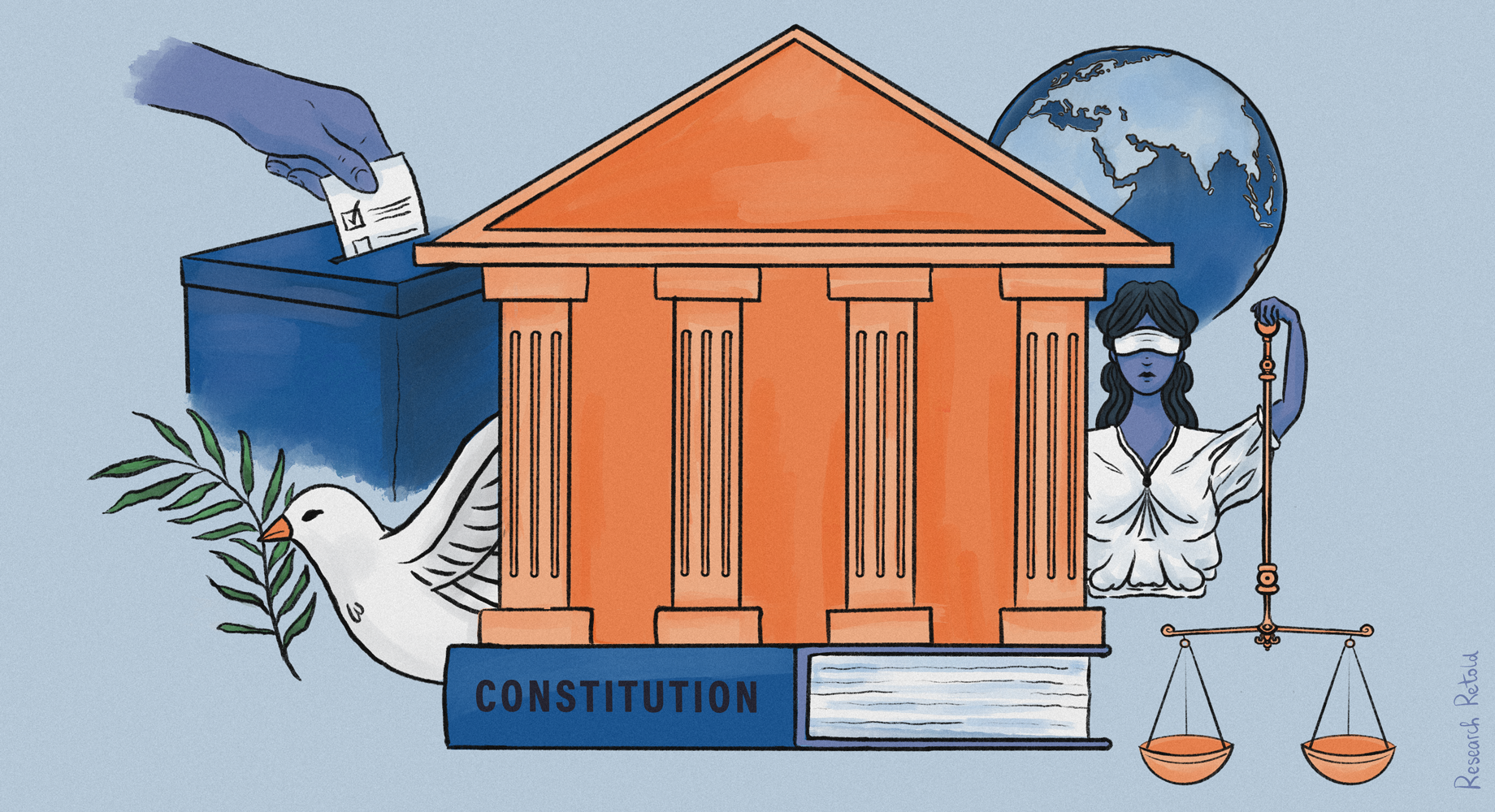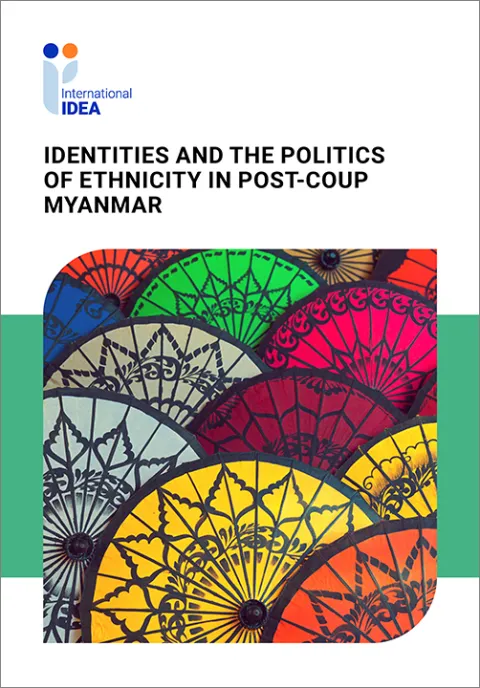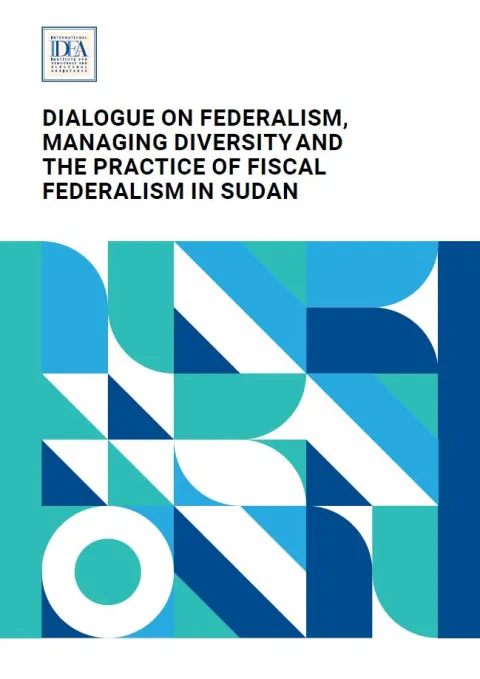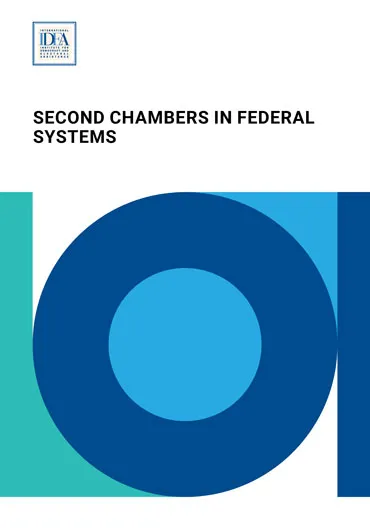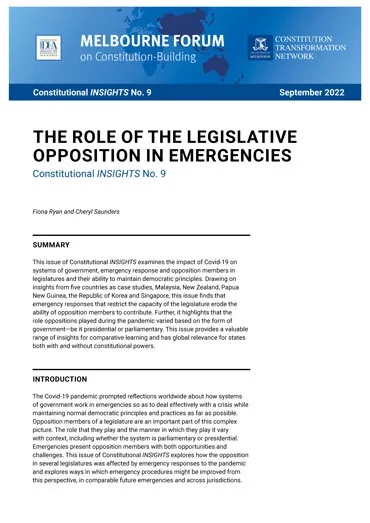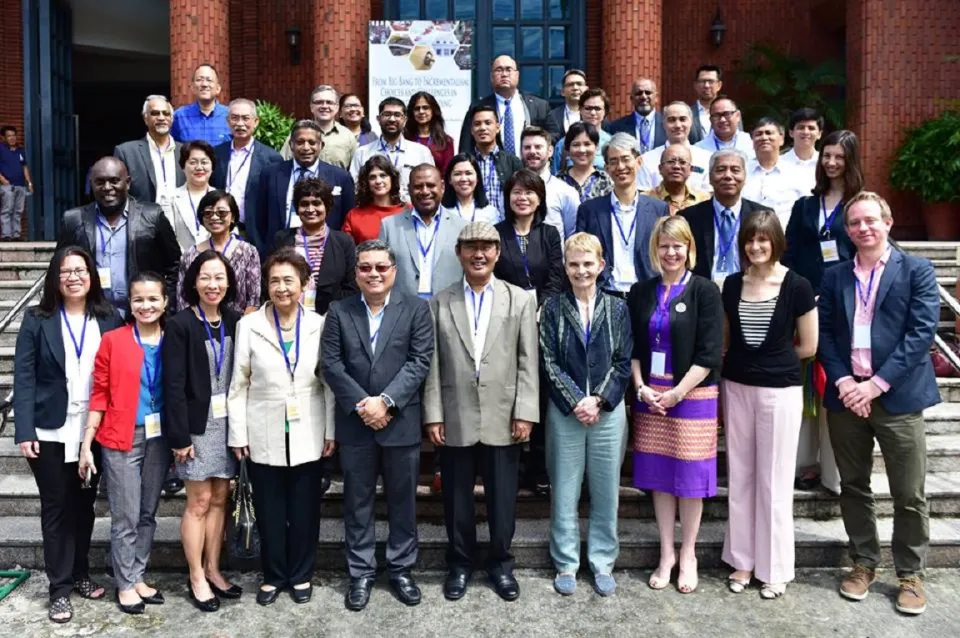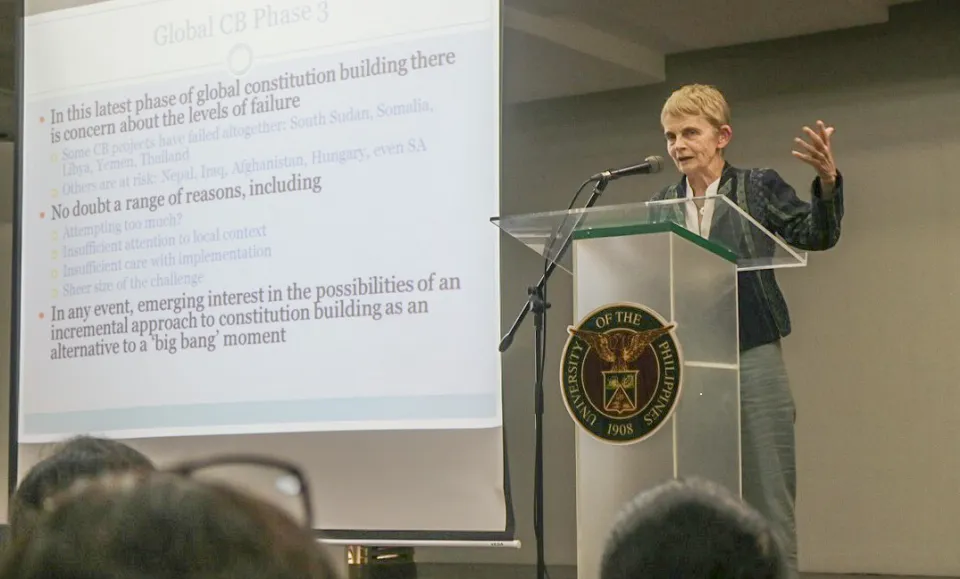Implementing Federalism
Federalism or devolution involves the organization of public power so that government, on at least two levels, is responsive and accountable to the people that it serves.
More than 25 countries around the world operate as a federation of some kind. Many more devolve power in other ways, either across the country or in particular regions with special autonomy.
This issue of Constitutional INSIGHTS explains why any change from a centralized to a federal or devolved system is a significant one. It also outlines some of the challenges that arise in the context of such change, and suggests options that might be available to meet them.
The Melbourne Forum on Constitution-Building in Asia and the Pacific is a platform co-organized by the Constitution Transformation Network and International IDEA. It brings together scholars and practitioners of constitution building from across the region, to share their perspectives on critical issues, as a contribution to global understanding of the field.
This series of publications captures insights from the Melbourne Forum in an accessible and practice-oriented format.
Details
Contents
Introduction
1. What are the principal features of a federal form of government?
2. What is involved in implementing new federal constitutional arrangements
3. What challenges might be expected in implementing new federal arrangements?
4. How can such challenges best be met?
References and further reading
Give us feedback
Do you have a question or feedback about this publication? Leave us your feedback, and we’ll get back to you
Send feedbackImplementing Federalism
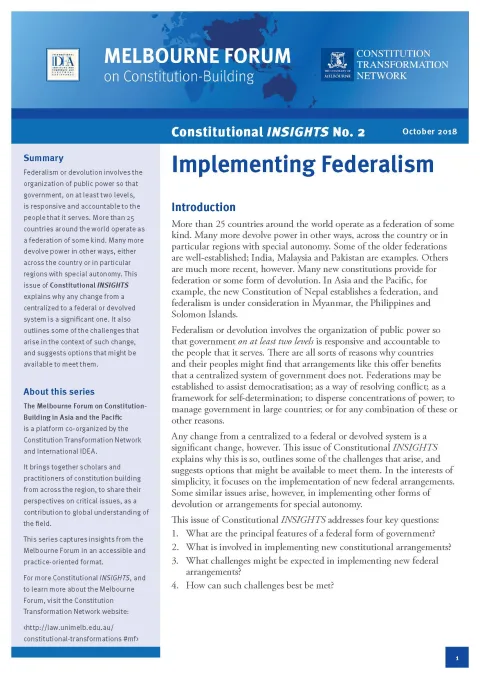
| Total views | 8390 |
|---|---|
| Downloads | 70 |
| Rating |
Give us feedback
Do you have a question or feedback about this publication? Leave us your feedback, and we’ll get back to you
Send feedback